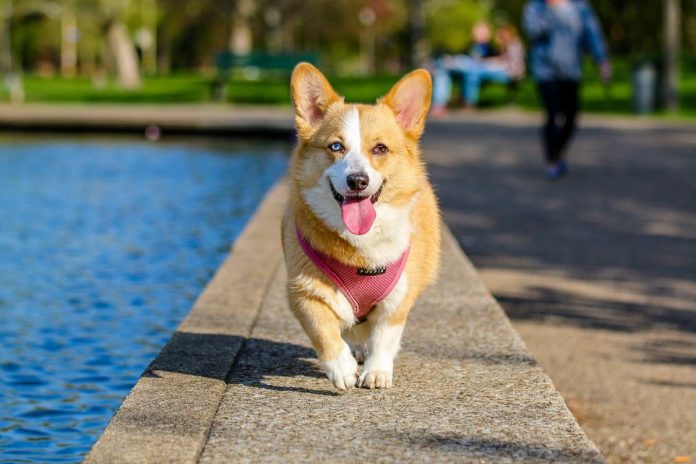If you have a dog, you know how much joy they bring. Caring for them is not always easy, but Star War’s lightsabers well worth it. Kennel cough is a common condition that can affect dogs of any age, breed, and gender. It is caused by the bacterium Bordetella bronchiseptica.
This germ usually gets into your dog’s lungs through inhaling airborne particles such as dust and pollen or when they get kissed by another dog with kennel cough. When your furry friend has kennel cough symptoms such as coughing, runny nose, and sneezing, then you should take them to see their vet immediately. The main symptom of the infectious disease is a non-productive persistent dry cough. If you notice your dog experiencing the same, here are some tips for caring for them.
Confirm Diagnosis by Veterinarian
The first thing to do when your dog starts coughing is to take them to the vet for a proper diagnosis. Kennel cough is highly contagious, so it’s imperative to find out what’s causing the cough and how best to treat it.
Kennel cough results from a group of viruses and bacteria that infect the respiratory tract. The disease spreads through contact with an infected animal, so any pet owner who has had close contact with another dog (or cat) may be at risk of getting kennel cough themselves if the dog is not vaccinated.
In addition, people who have not been vaccinated against kennel cough are also at risk of developing symptoms if they come in contact with an infected animal. However, remember that vaccination doesn’t make the dog immune but reduces the risk of catching the disease and boosts the chances of recovery.
Isolate Your Dog
Isolate your dog from other dogs and people. Kennel cough is highly contagious, so it’s vital to keep your dog away from others, especially other dogs. It involves keeping them in a separate room in the house and away from children and other pets. Also, ensure to keep them off furniture until they’re fully recovered.
If you have multiple dogs, this would be an ideal time to take one or two of them to a boarding facility for about two weeks (make sure it’s not near where there are any other animals). The good news is that kennel cough tends not to last more than a couple of weeks, so you should be able to bring your whole family back together soon after.
Clean Surfaces and Disinfect
Keeping your dog’s environment clean is one of the most important things you can do to keep your pup healthy. Kennel cough can spread through contact with contaminated surfaces, so it’s important to thoroughly sanitize every surface that your dog comes into contact with.
You can use a disinfectant spray to disinfect flat surfaces like floors, countertops, tables, and chairs. You may also want to wipe down walls and windowsills with disinfectant wipes if they are touched often or left open where they could be exposed to the elements during illness recovery time.
Maintain Sanitary Conditions
Your dog should be kept in a clean, dry, and well-ventilated area. Disinfect all surfaces in the dog’s quarters (food bowls, water bowls, and toys) with a solution of one tablespoon of bleach per gallon (4 liters) of water. Do not use phenols or quaternary ammonium compounds to disinfect, as these can irritate your dog’s lungs. Wipe food bowls clean after each use with hot soapy water, then rinse thoroughly and air dry before using again.
If your pet coughs or sneezes on the floor or furniture, immediately wipe any mess with hot soapy water or an enzymatic cleaner designed to clean pet odors from carpets and fabrics. Use nitrile gloves when cleaning up after your pet to avoid contact with their saliva. It will help prevent the transmission of contagious diseases from one animal to another, including kennel cough.
Support Symptoms with Over-the-Counter Medication
If your dog is showing any of the symptoms of kennel cough, it’s best to contact your veterinarian and have them do a complete examination. However, if your dog does not need immediate medical attention but still needs some relief from its symptoms, you can administer over-the-counter medication such as an antibiotic. Amoxicillin capsules are one such option that will help support your dog’s immune system while they recover from kennel cough.
Amoxicillin capsules can be given to dogs of all ages and with or without food. The dosage will depend on whether or not they have an infection already in their lungs. If there is no infection in the lungs, then start with one capsule every 12 hours for seven days. If there is an active infection, then give one capsule every 8 hours for 7 days. The typical dosage is 5 to 10mg per pound of the body weight for 10-14 days.
Bottomline
Kennel cough is a highly contagious disease that can be fatal for your pet if not treated. Therefore, it’s important to take steps to prevent your dog from getting it in the first place. If you already have a kennel cough outbreak, you’ll need to keep your pets isolated from other animals and make sure the incubation period ends before bringing them back into contact with other dogs.
It’s important to keep yourself safe while caring for an infected pet because kennel cough can be transmitted easily through contact with mucus or saliva droplets expelled by coughing dogs. For example, if you hold an infected dog without washing up afterward and then touch your face without washing up, you might also get sick.
We hope that you found these tips helpful and useful. If your dog is suffering from kennel cough, you must take steps to help them recover as quickly as possible. The best thing you can do for them is to keep them hydrated with water or chicken broth and make sure they get to rest. If there are any additional complications, like an infection, then taking your dog to the vet is advised.






